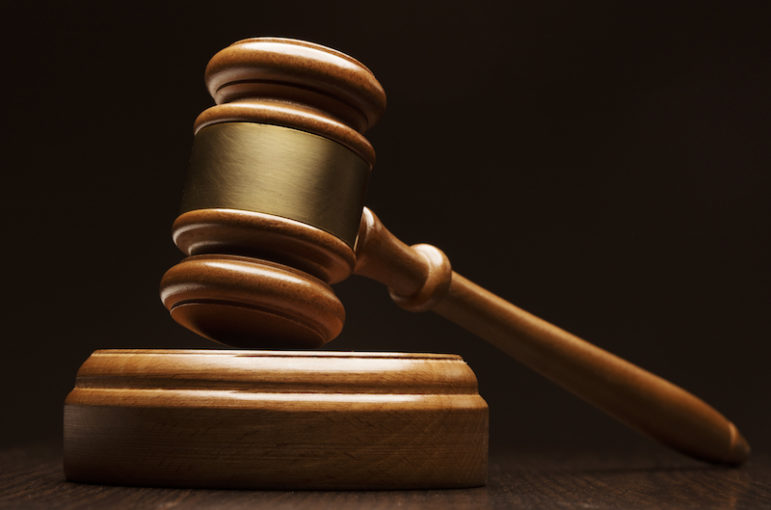
While many journalists are skeptical of lawyers giving them advice on how to do their work, listening to their advice can prevent costly lawsuits.
Lucy Freeman, CEO of Media Legal Defence Initiative (MLDI), Doreen Weisenhaus, senior lecturer at Northwestern University, Emmanuel Vargas Penagos, Legal Grants Officer at MLDI, Galina Arapova, director of Mass Media Defence Centre in Russia, and Alexander Papachristou of the Vance Center in the U.S. have decades of experience between them in how to protect journalists.
Here are their tips on how to protect yourself and your sources when reporting on sensitive issues.
Accessing Information
When receiving information from sources, be sure to follow security tips.
Communicate over secure channels: There are encrypted communication channels and document exchange platforms, such as Signal, WhatsApp, or SecureDrop. Familiarize yourself with technologies that are available to protect yourself and your sources. (Though in some cases communicating over encrypted channels itself can be seen as evidence against you).
Minimize surveillance: Use a virgin computer that has never been connected to the internet. Use a burner phone. Don’t leave a paper or electronic trail that might hurt you or the case you’re working on.
Get to know your sources: When working on sensitive stories, make sure to get to know your sources over a long period of time to be sure you can trust them.
Covering protests: Journalists who cover protests are at high risk of being assaulted, either physically or legally. Here are some strategies to make sure you keep risks as low as possible.
- Document everything: If you’re being harassed or assaulted during a protest, make sure you document as much as you can: Note the time and location. Note exactly what happened. Try to ID the police who are harassing you. Video what’s happening. Have a lawyer take photographs of your injuries afterwards. Insist on being taken to a hospital to document injuries. All of this may be relevant if a court case happens.
- Know your rights: In most jurisdictions, police may not prevent journalists from covering protests if they’re in a public place — as long as you’re not hindering police in their work. If you’re arrested — don’t panic. Identify yourself clearly as a journalist. Ask to make a phone call, but don’t use your own phone. Authorities might try to seize your phone, though in most jurisdictions they will need a warrant for that. Check out your domestic jurisdiction with regard to freedom of expression and media laws.
- Familiarize yourself with international jurisdiction: Knowing how international courts have decided could help you decide what legal arguments you can use. For example, check out what the European Court of Human Rights has ruled and have a look at the Pentikäinen v Finland case.
- During the protest: be mindful of what you’re wearing. In some cases, it might be smart not to wear clothes that set you apart as a journalist. At the same time, try to make sure you’re not seen as being part of the protest. Always identify yourself as a journalist and immediately show your press card if asked. Activate your network: Tell your editor, lawyer, and friends where you are and at what time you expect to be checking back in with them. If you don’t come back in time, they will know that something is wrong.
Holding Information
Someone gave you sensitive information — what do you do with it?
What kind of information is it? Make sure you know the type of information you have, be it in the form of an image, interview, or a document. Is it privileged information? Does it contain corporate secrets? What about copyrights? In what format do you keep the information? Is it on a USB stick, a phone, a tablet, a laptop, a piece of paper, or in your memory? There are pros and cons to any of those forms, so you have to decide which might reduce your legal risk.
Who should have the information? Share information with your editors. Share information with your lawyer; the law protects lawyers often more than journalists. But do be careful about who you share the information with — it might put them at risk.
Preparing for publication: Run-Ins with authorities: If you have confidential information, be prepared for searches. You can’t prevent them, but you can take steps to make sure they are less damaging.
- Store data in the cloud: Try to store as much data as possible in secured clouds, and not your physical devices. If authorities confiscate your devices and break through your password, they will not have access to your documents if they are stored remotely.
- Identify yourself as a journalist: If authorities are searching your office or your home, say loudly and clearly that you are a journalist and that you have confidential information that relates to your profession as a journalist. Make sure that this is included in the protocol of the search and legal procedural papers. This will help you to challenge the search under international law, such as with the European Court of Human Rights.
- Who owns the equipment? It can be helpful to use equipment owned by your news outlet. If you are taken into custody or authorities ask to search the phone, you can say that you don’t have the right to open it, as it’s not yours, and that they need to get permission from your news outlet. Try to delay or disperse attempts to get sensitive information as much as possible.
- Where and how do you travel? Be careful where you’re going with your information. It might be relatively safe in your own home, but if you travel across international borders, you’re pretty much unprotected. Customs officials can practically seize and check everything that you carry with you.
Publishing Your Story
Publishing a story can carry many legal risks. Here are some strategies to minimize the risks of being sued.
Defamation: One of the most common risks of publishing stories is being sued for defamation. Be sure to be absolutely certain of the information you’re publishing. When you’re editing the article and don’t have evidence of truthfulness, think about using other linguistic forms than statements; for example, change it to a question, a perception, or an opinion. This is harder to challenge in court.
Confidential information: In most jurisdictions, there is not one specific law governing the disclosure of confidential information. Make sure you familiarize yourself with your domestic regulations and identify issues on which your country restricts publication.
 Leonie Kijewski is a freelance reporter based in Cambodia. Her work has appeared in The Guardian, Al Jazeera, Voice of America and various other publications. She speaks German, English, French, and Dutch. She previously worked for the Phnom Penh Post in Cambodia as a sub-editor and reporter. She holds a master’s degree in international law.
Leonie Kijewski is a freelance reporter based in Cambodia. Her work has appeared in The Guardian, Al Jazeera, Voice of America and various other publications. She speaks German, English, French, and Dutch. She previously worked for the Phnom Penh Post in Cambodia as a sub-editor and reporter. She holds a master’s degree in international law.
